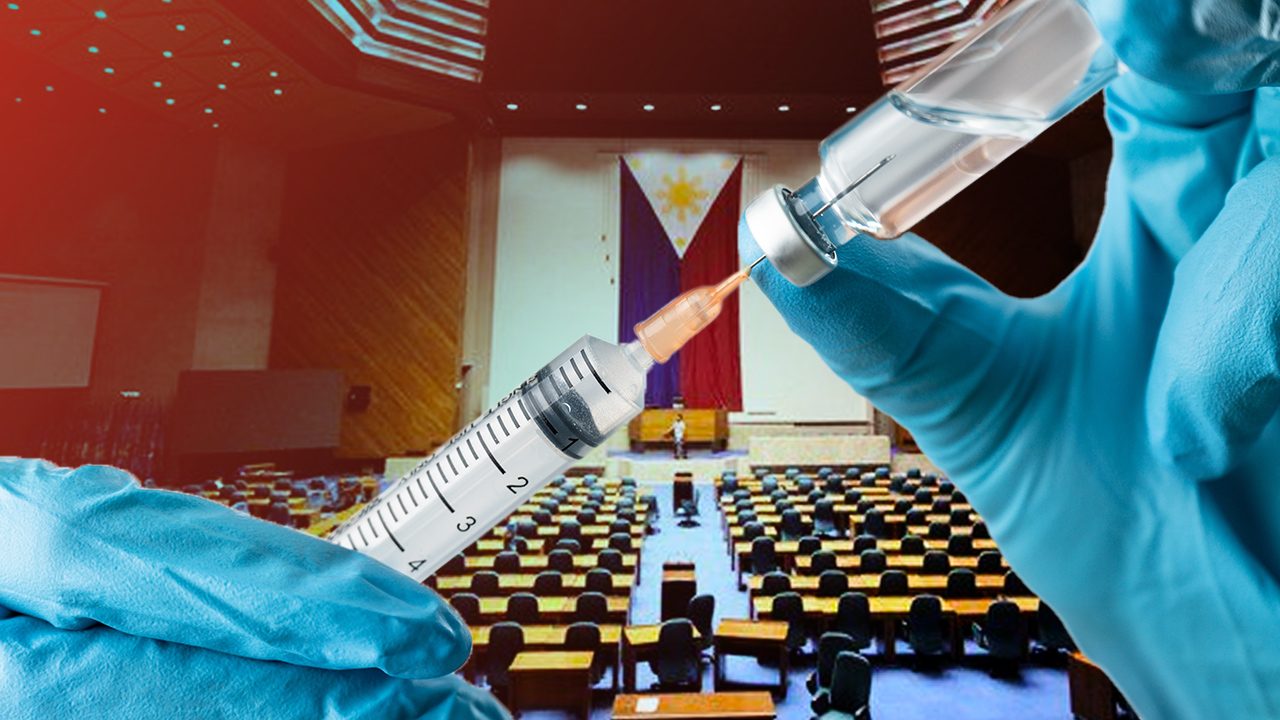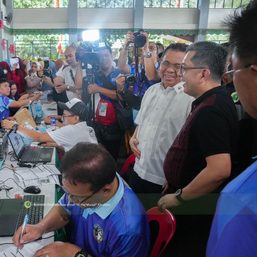SUMMARY
This is AI generated summarization, which may have errors. For context, always refer to the full article.

Lawmakers agreed to strike out their proposal to allow local government units (LGUs) to directly buy coronavirus vaccines from manufacturers in the bill aimed at expediting the procurement process.
On Wednesday, February 17, Rappler obtained a copy of the committee report on House Bill (HB) No. 8648 that was approved by the committee on appropriations.
The amendments were later finalized when HB No. 8648 was brought to the House plenary for its period of debates and period of amendments on Wednesday afternoon.
The bill will have to be approved on 2nd and 3rd readings before hurdling the House.
The amended version of HB No. 8648 essentially retained the current policy of the National Task Force Against COVID-19 (NTF) stating that LGUs can reserve vaccine supplies only by signing tripartite deals with the national government and the manufacturer concerned.
Section 3(c) of the bill now reads: LGUs “may purchase, only in cooperation with the DOH (Department of Health) and NTF Against COVID-19, through a multiparty agreement which shall include the DOH and the relevant supplier of COVID-19 vaccine or ancillary supplies or services.”
This is a major amendment to the original version of HB No. 8648 that was earlier approved in principle by the panel, since the measure would have allowed LGUs to directly buy COVID-19 vaccines straight from manufacturers.
Some of the country’s top medical experts had strongly opposed this because it would lead to a “maldistribution” of COVID-19 vaccines, where richer LGUs with the capacity to pay would get priority access, leaving poorer communities further behind.
Tax exemptions, no public bidding
Still, HB No. 8648 aims to expedite the vaccine procurement process in the Philippines by authorizing the DOH and the NTF to engage in “negotiated procurement under emergency cases” for the COVID-19 vaccines to be distributed to LGUs.
Negotiated procurement would allow the DOH and the NTF to directly negotiate a contract with a capable supplier to speed up the process.
The bill likewise grants tax exemptions on the COVID-19 vaccines to be procured.
It would also waive the Phase IV clinical trial requirement for COVID-19 medication and vaccines, but the drugs should still be recommended by the World Health Organization and/or other internationally recognized health agencies.
Under the bill’s multiparty deal scheme, LGUs would only be allowed to purchase COVID-19 vaccines that have already been registered with the Food and Drug Administration (FDA) or have been issued emergency use authorization (EUA).
So far, only the vaccines created by Pfizer-BioNTech and AstraZeneca have secured EUAs from the FDA.
HB No. 8648 also creates an indemnification fund to shoulder the medical costs of an individual who would experience “adverse events” after getting the COVID-19 vaccine. The bill, however, has not yet specified the exact amount for the fund or where it would be sourced.
The Senate version of the bill is more specific, allotting a P500-million COVID-19 indemnification fund that would be sourced from the Contingent Fund under the 2021 national budget.
If passed into law, the bill’s provisions would be valid during the state of calamity and public health emergency that was declared due to COVID-19 or until June 30, 2022 – that is unless President Rodrigo Duterte lifts the state of emergency or extends it. – Rappler.com
Add a comment
How does this make you feel?


![[Time Trowel] Evolution and the sneakiness of COVID](https://www.rappler.com/tachyon/2024/02/tl-evolution-covid.jpg?resize=257%2C257&crop=455px%2C0px%2C1080px%2C1080px)







There are no comments yet. Add your comment to start the conversation.